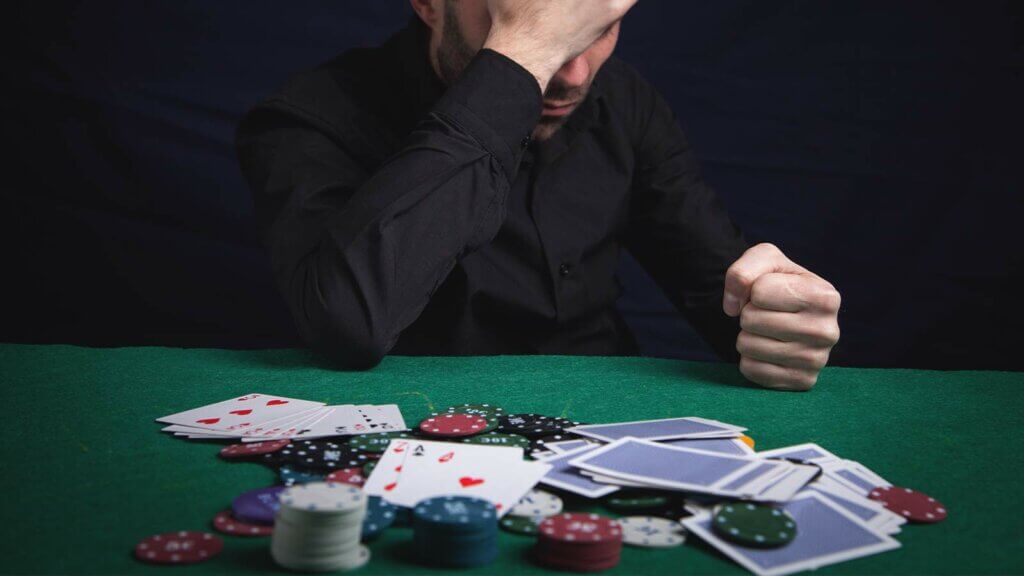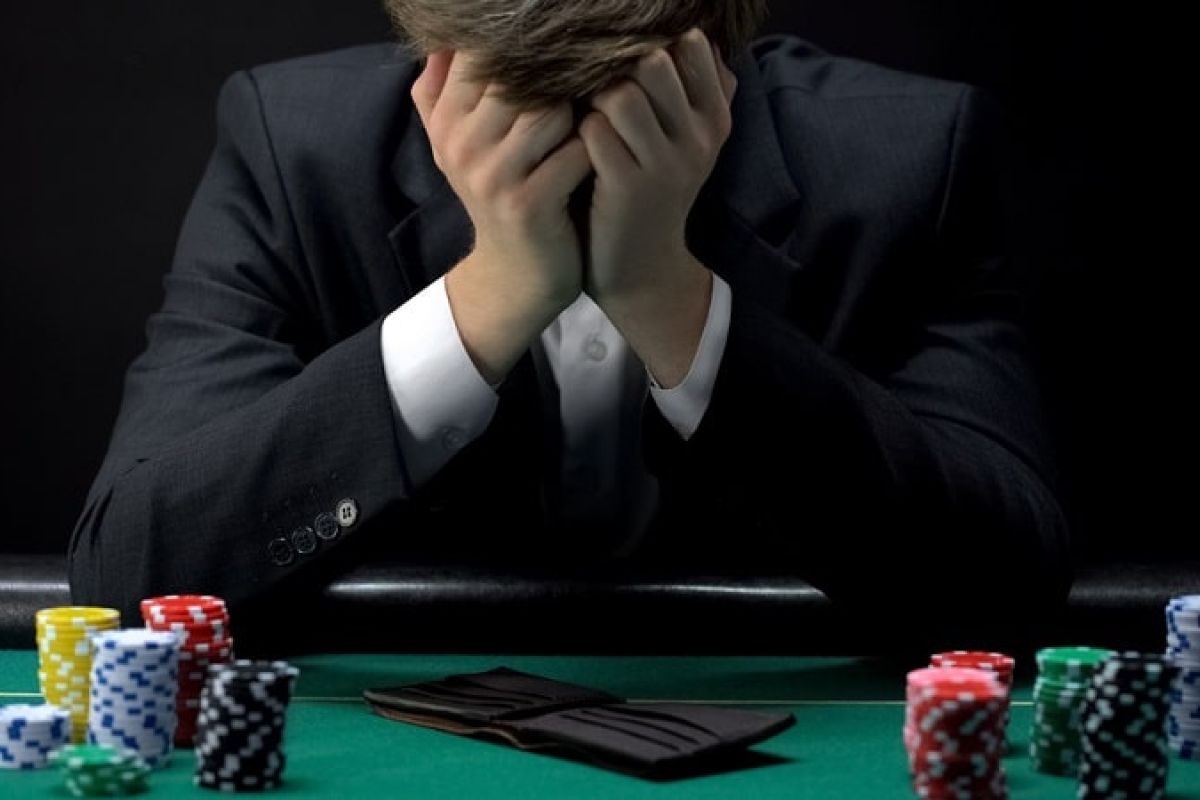Gambling And Mental Health - Understanding The Impact On Well-being
Gambling and mental health are closely intertwined, affecting a person's overall well-being in significant ways. Understanding the impact of gambling and mental health on well-being is essential for recognizing the complexities involved and addressing the associated challenges.
Author:James PierceReviewer:Elisa MuellerMar 01, 2024861 Shares45.3K Views

Gambling and mental health are closely intertwined, affecting a person's overall well-being in significant ways. Understanding the impact of gambling and mental healthon well-being is essential for recognizing the complexities involved and addressing the associated challenges. This article delves into the various ways in which gambling behaviors can influence mental health outcomes, ultimately shaping people's quality of life.
Gambling And Mental Health Disorders
Understanding the link between gambling and mental health disorders requires a comprehensive examination of the complex interplay between psychological factors and gambling behaviors. Research suggests a bidirectional relationship, where individuals with preexisting mental health conditions may be more vulnerable to developing problematic gambling behaviors, while excessive gambling can exacerbate or even trigger mental health issues.
One significant aspect of this connection lies in the role of impulsivity and reward processing. Individuals with conditions like attention deficit hyperactivity disorder (ADHD), bipolar disorder, or substance use disorders often exhibit heightened impulsivity, which can lead to impulsive gambling behavior as a way to seek immediate gratification. Similarly, those with mood disorders such as depression or anxiety may turn to gambling as a coping mechanism to alleviate distress or escape from negative emotions temporarily.
The reinforcing nature of gambling, particularly in games of chance like slot machines or lottery tickets, can activate the brain's reward system, releasing neurotransmitters like dopamine associated with pleasure and reward. Over time, this can contribute to the development of addictive patterns, as individuals seek to replicate the euphoria experienced during wins, leading to compulsive gambling despite adverse consequences.
Chronic stress, financial strain, and social isolation resulting from gambling-related problems can significantly impact mental well-being. The shame, guilt, and financial devastation associated with excessive gambling can exacerbate existing mental health conditions or precipitate the onset of new ones. Individuals may experience symptoms of depression, anxiety, or even suicidal ideation as they grapple with the consequences of their gambling behavior.
How Gambling Affects Mood
Each of us has a natural mood setting that can fluctuate slightly throughout the day. Gambling can momentarily elevate this setpoint, providing pleasure, but it typically returns to normal afterward. However, in cases of compulsive gambling, the mood setpoint may decrease even when not actively gambling.
This decrease in mood can lead to depression in the individual. Depression may intensify if they consistently gamble beyond their means, leading to financial distress, or if they attempt to quit unsuccessfully.
Ultimately, gambling consumes their thoughts, making it difficult to find enjoyment in other activities. Those with compulsive gambling disorders are also at a heightened risk of experiencing suicidal thoughts, underscoring the importance of treating gambling disorders with the same urgency as any other medical condition.
Gambling And Anxiety
Many individuals turn to gambling as a means to distract themselves from anxiety or to channel their anxiety into the thrill of gambling. Interestingly, up to 34% of problem gamblers also grapple with severe anxiety, such as post-traumatic stress disorder.
Compulsive gamblers often conceal their habit from others, resorting to lies and excuses about their whereabouts or spending habits. Keeping their gambling problem a secret can amplify anxiety: What if someone discovers it? What if my relationships suffer due to my gambling?
Instead of resorting to gambling, it's beneficial to learn how to manage anxiety in healthier ways. Engage in self-care practices like breathing exercises, journaling, or unwinding with a low-key TV show.
Gambling And Stress
While gambling might initially feel like a relief and distraction from stress, it can contribute to more stress in various ways. Financial stress is a common outcome when gambling leads to excessive spending and accumulating debt. This, in turn, can strain relationships and erode trust with family and friends. It's essential to recognize that gambling is not an effective coping mechanism.
If you're seeking a way to "take the edge off" after a long day, consider alternatives like getting some fresh air and taking a 30-minute walk around your neighborhood. While it may not immediately seem relaxing, exercise is one of the most effective natural stress reducers.
Gambling And Mental Health Support
Supporting individuals with gambling problems and mental health concerns requires a multifaceted approach that addresses their unique needs and challenges. One crucial aspect of this support involves ensuring that individuals have access to a range of treatment options tailored to their specific circumstances.
This may include counseling, therapy, support groups, and medication management for co-occurring mental health conditions. Efforts should be made to remove barriers to treatment, such as financial constraints or stigma, by offering sliding-scale fees, insurance coverage, or free services through community organizations.
It's essential to adopt a person-centered approach that acknowledges the individual's autonomy and empowers them to actively participate in their treatment planning and decision-making process. Integrated treatment models are also crucial, recognizing the interconnected nature of gambling disorders and mental health conditions. By coordinating care across multiple providers and disciplines, individuals can receive comprehensive and seamless support for their complex needs.
Holistic support services play a significant role in addressing the diverse needs of individuals with gambling problems and mental health concerns. These may include financial counseling, vocational rehabilitation, housing assistance, and legal advocacy. Collaboration with community organizations and social service agencies can ensure that individuals receive wraparound support that addresses the underlying determinants of their health and well-being.
Peer support networks and mutual aid groups provide valuable opportunities for individuals to connect with others who share similar experiences. By offering peer-led guidance, empathy, and encouragement, these networks can reduce isolation and promote social connection as a protective factor against relapse.
Continuing care and relapse prevention efforts are essential for supporting individuals following the completion of formal treatment, equipping them with coping skills and healthy strategies to navigate triggers and prevent relapse into gambling or mental health symptoms.
Family and caregiver support is also crucial in the recovery process. Providing education, counseling, and support services for family members and caregivers can help address their own needs and facilitate their role in supporting the individual's recovery journey. By promoting open communication, setting boundaries, and fostering healthy coping strategies within families, a supportive and nurturing environment can be created to aid in the individual's recovery.
Gambling And Mental Health - FAQ
What Type Of Mental Disorder Is Excessive Gambling?
The American Psychiatric Association's Diagnostic and Statistical Manual of Mental Disorders (DSM-5) considers gambling disorder as a behavioral addiction. It's currently the only behavioral addiction the DSM-5 recognizes. In certain ways, gambling disorder resembles substance use disorder.
Is Gambling Bad For The Brain?
Studies have linked gambling disorders to variations in a variety of brain regions, particularly the striatum and prefrontal cortex, which are involved in reward processing, social and emotional problems, stress, and more.
How Do Gamblers Behave?
Trying to get back lost money by gambling more (chasing losses) Lying to family members or others to hide the extent of your gambling. Risking or losing important relationships, a job, or school or work opportunities because of gambling. Asking others to bail you out of financial trouble because you gambled money away.
Final Words
The link between gambling and mental health underscores the need for comprehensive support systems and interventions that address both aspects of well-being. By acknowledging the impact of gambling on mental health and vice versa, we can work towards fostering healthier communities where individuals are empowered to seek help, overcome challenges, and achieve greater overall well-being.

James Pierce
Author

Elisa Mueller
Reviewer
Latest Articles
Popular Articles
